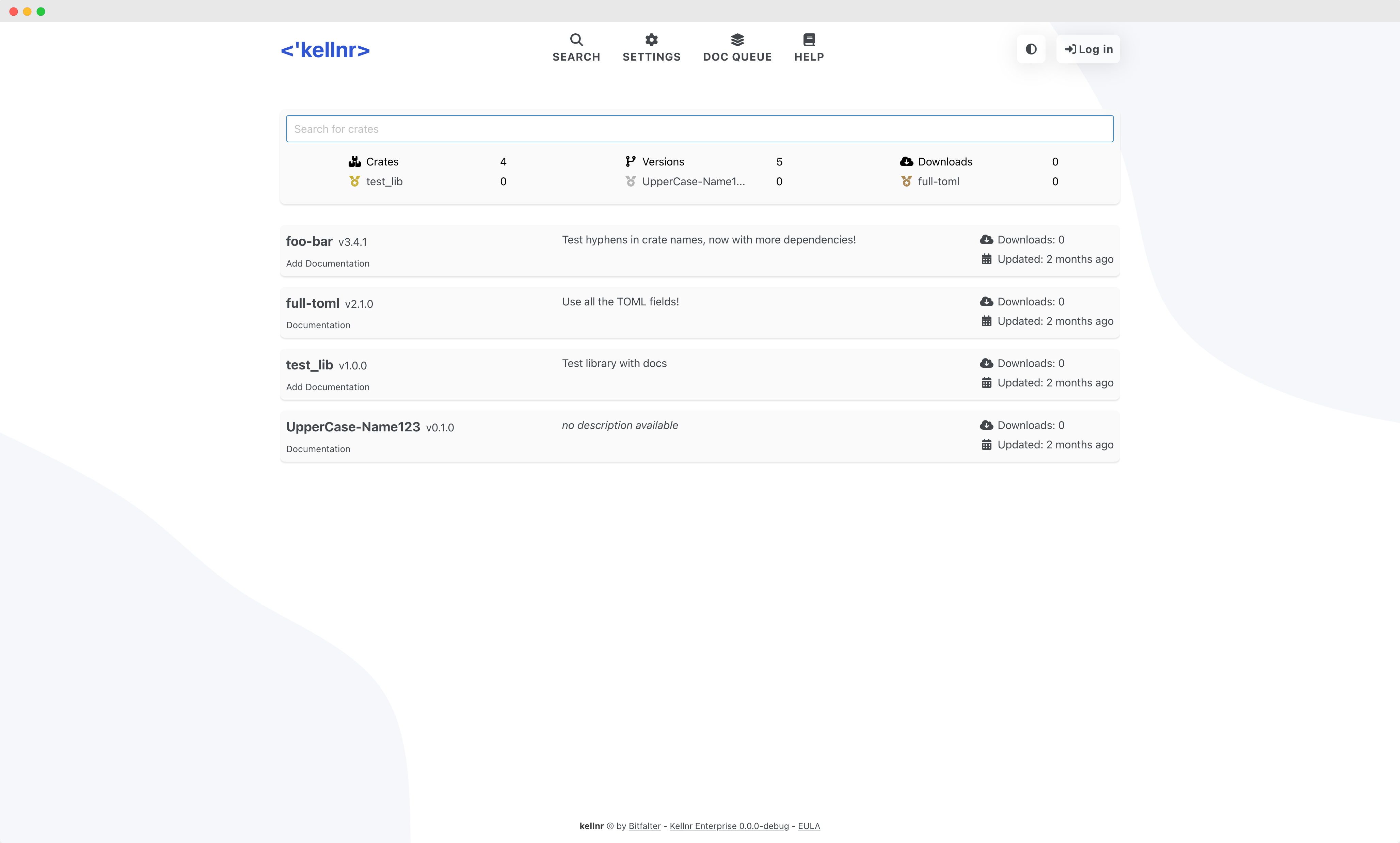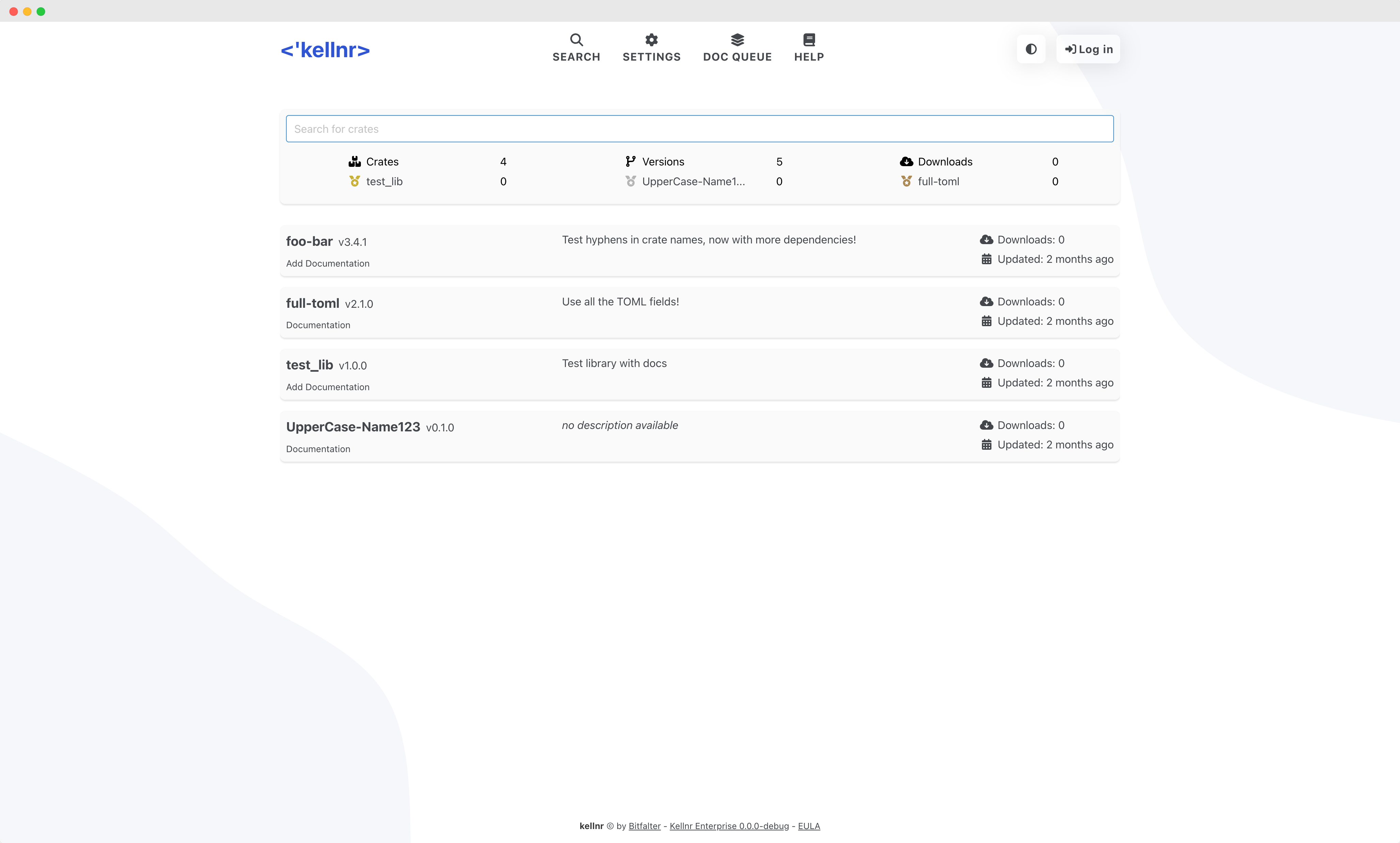- 43 Posts
- 56 Comments
I’ve the same feeling about sub-issues. I don’t want the corporate pain of Jira to be replicated in Github. If you can’t structure one issue to be comprehensive, multiple sub-issues won’t help you either.
I see. Thanks for the answers. Guess it’s time to spend some money 😔

 1·6 months ago
1·6 months agoAs mentioned on Mastodon (https://mastodon.social/@[email protected]/113460954769241417) there seems to be no way to do it at the moment :(
An honorable goal 😀
Just released Kellnr (https://kellnr.io) 5.2.6 with some bug fixes. I really wish I had more time for new features but at the moment my spare time is rare. If you want to host your own crates on your own infrastructure, check it out.
Thanks, I’ll try that!
Sure. I import the certificates like this:
{ config, pkgs, inputs, ... }: { security.pki.certificateFiles = [ ./certificates/home.pem ]; }where
home.pemis a default PEM formatted certificate. It works fine to import the cert system wide this way.If I enter the flake.nix and run a simple
curlagainst the remote server I get the following, which is typical for a TLS certificate error.curl https://webpage.home curl: (35) OpenSSL/3.0.14: error:16000069:STORE routines::unregistered schemeSo it seems to me that the development shell does not pick up the certificates installed on the system. I can work around that by using an impure shell, but I think that this is not how nix should be used.
I use that too. Unfortunately it does only work with Docker and on some machines I’ve only containerd+nerdctl available. Would be cool if test containers supports more than Docker as a runtime.
I reworked the whole CI/CD pipeline for https://kellnr.io. Switched from Ubuntu as the base image to the official Rust (Debian) image. Additionally, musl targets are build and released on github. This should allow kellnr to run out-of-the-box on any Linux distro.
Thanks for the response. You are right, the config was at the wrong path. Unfortunately, the config itself does not work, too. After a bit of testing around this worked for me:
apiVersion: v1 kind: PersistentVolume metadata: name: nix-cache-volume spec: capacity: storage: 500Gi storageClassName: manual accessModes: - ReadWriteOnce hostPath: path: "/mnt/k8s/nix-cache" # Needs exists before PV is created! persistentVolumeReclaimPolicy: Retain --- apiVersion: v1 kind: PersistentVolumeClaim metadata: name: nix-cache-pvc spec: accessModes: - ReadWriteOnce storageClassName: manual resources: requests: storage: 500Gi --- apiVersion: apps/v1 kind: Deployment metadata: name: nix-cache spec: replicas: 1 selector: matchLabels: app: nix-cache template: metadata: labels: app: nix-cache name: nix-cache spec: volumes: - name: nix-cache-storage persistentVolumeClaim: claimName: nix-cache-pvc - name: nix-cache-config configMap: name: nix-cache-config containers: - name: nix-cache image: nginx:1.27.0 ports: - containerPort: 80 volumeMounts: - name: nix-cache-storage mountPath: /data - name: nix-cache-config mountPath: /etc/nginx/nginx.conf subPath: nginx.conf readOnly: true resources: limits: memory: "512Mi" cpu: "300m" requests: memory: "256Mi" cpu: "200m" --- apiVersion: v1 kind: Service metadata: name: nix-cache spec: selector: app: nix-cache ports: - protocol: TCP port: 80 targetPort: 80 --- apiVersion: networking.k8s.io/v1 kind: Ingress metadata: name: nix-cache-ingress annotations: traefik.ingress.kubernetes.io/router.tls: "true" spec: rules: - host: "nix-cache.raspi.home" http: paths: - pathType: Prefix path: "/" backend: service: name: nix-cache port: number: 80 tls: - secretName: nix-cache-raspi-home-tls hosts: - "nix-cache.raspi.home" --- apiVersion: cert-manager.io/v1 kind: Certificate metadata: name: nix-cache.raspi.home spec: commonName: nix-cache.raspi.home dnsNames: - "nix-cache.raspi.home" secretName: nix-cache-raspi-home-tls issuerRef: name: ca-issuer kind: ClusterIssuer --- apiVersion: v1 kind: ConfigMap metadata: name: nix-cache-config data: # See: https://www.channable.com/tech/setting-up-a-private-nix-cache-for-fun-and-profit nginx.conf: | events { worker_connections 1024; } http { proxy_cache_path /data/nginx/cache max_size=500G keys_zone=cache_zone:50m inactive=365d; proxy_cache cache_zone; proxy_cache_valid 200 365d; proxy_cache_use_stale error timeout invalid_header updating http_500 http_502 http_504 http_403 http_404 http_429; proxy_ignore_headers X-Accel-Expires Expires Cache-Control Set-Cookie; proxy_cache_lock on; server { listen 80; server_name nix-cache.raspi.home; location /nix-cache-info { return 200 "StoreDir: /nix/store\nWantMassQuery: 1\nPriority: 41\n"; } location / { proxy_set_header Host $proxy_host; proxy_pass https://cache.nixos.org; } } }The config is an adaption from this blog post: https://www.channable.com/tech/setting-up-a-private-nix-cache-for-fun-and-profit
I’m not ML pro and never used Python or Rust for it, but I know that our ML team uses Python extensively for it. My gut feeling is that Python stays the king in the ML field but the underlying libraries are going to progress from C++ to Rust in the future. Or at least, if Rust gets stronger math/statistics libraries. If you get something cool running with Rust and ML, I’m interested to read about it.
Unfortunately not. But I try to work on it a few hours every week in my spare time. I think that having an easy and free crate registry is crucial for the adaption of Rust in the commercial space. Companies don’t want to share their code publicly on crates.io. My full time job is in the IT security sector. My hope is that by pushing Rust as a safe language, we can close some fundamental design flaws that languages like C/C++ introduced and make software landscape more secure.
I ported the frontend for https://kellnr.io from vuex to pinia, which makes the code to hold state in the frontend much cleaner.
How is the overall ML story with Rust? Is it usable in comparison to Python?
The selling point of Ice (the underlying framework for libcosmic) is the cross-platform compatibility. Can I use libcosmic cross-plat as well, or is it more a specialisation of Ice for Linux with the clear focus on the Cosmic desktop? Would be cool to re-use some widget etc.
Never heard of it. I used the Rust book when I started learning it.
Is rust common in schools now or is it your personal interest that lets you use it?
What is missing in the existing ones?
Never used bstr. What was interesting about it?







Many small companies use it for their internal crates, as kellnr builds and host the corresponding rustdocs, too. Another prevalent use-case is as a crates.io cache to speed a build times or lower the network traffic.